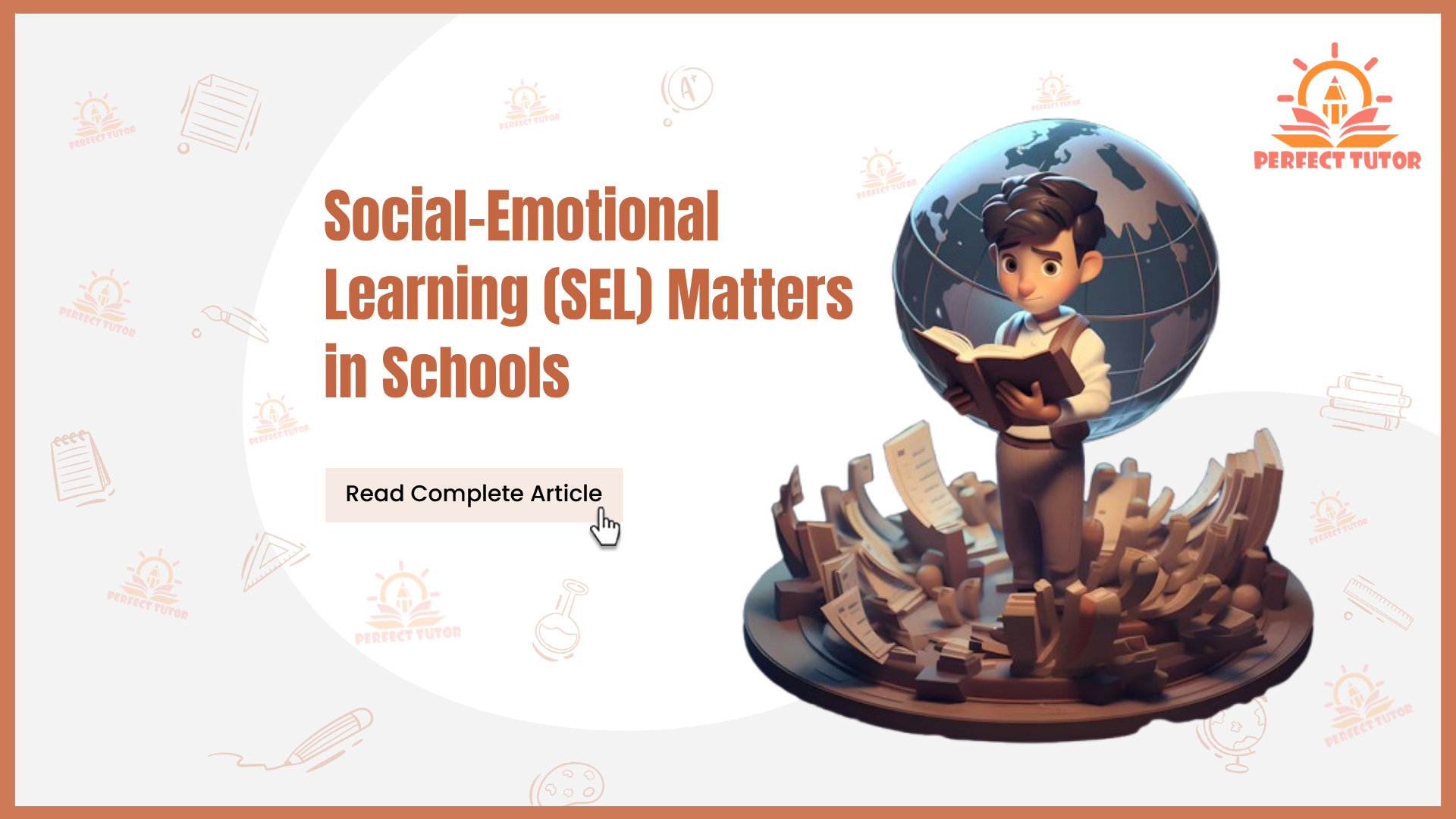Why Social-Emotional Learning (SEL) Matters in Schools
SEL is a learning process that helps students understand their emotions, communicate with others, solve problems peacefully, and make thoughtful choices. It’s not a subject with tests or grades, but its impact can be seen in every part of a child’s life, from classrooms to playgrounds and even at home.
This article will explain what SEL is, why it is important in schools, and how it prepares children for real-world success. If you are a parent, teacher, or anyone who cares about children’s growth, this guide is for you.
What is Social-Emotional Learning (SEL)?
Social-Emotional Learning (SEL) is the way children and adults learn to understand emotions, manage them in healthy ways, feel empathy for others, build good relationships, and make responsible decisions.
In simple terms, SEL teaches life skills. It helps students learn how to:
Recognize their feelings
Express emotions calmly
Handle stress or anger
Make friends and work in teams
Solve problems without fighting
Make good choices in tough situations
Why is Social-Emotional Learning Important?
SEL plays a big role in helping students become better learners and stronger individuals. Let’s look at why it matters so much in today’s world.
1. It Builds Emotional Intelligence
SEL helps children understand their own emotions and those of others. This skill, called emotional intelligence, teaches students to stay calm when they are angry, express sadness without feeling ashamed, and show kindness to others who are struggling.
2. It Improves Academic Performance
You might be surprised, but students who learn SEL actually do better in their studies. They learn how to focus in class, ask for help when they need it, and set goals for themselves. This leads to better results in school.
3. It Strengthens Social Skills
SEL teaches students how to talk to others, work in groups, and solve problems without fighting. These social skills help them make friends, build trust, and feel part of a community, both in school and later in life.
4. It Builds Resilience
Life doesn’t always go as planned. Children face stress, failure, and challenges. SEL teaches them how to bounce back from problems, learn from mistakes, and keep going. This is called resilience.
5. It Supports Mental Health
When students don’t know how to manage stress or sadness, they may feel overwhelmed. SEL helps them deal with difficult emotions in a healthy way. This reduces the risk of anxiety, depression, and other mental health problems.
6. It Reduces Bullying and Misbehavior
Students who practice SEL are more respectful and kind. They think before they act, understand how others feel, and solve conflicts peacefully. As a result, schools with SEL programs often see less bullying and fewer behavior issues.
7. It Prepares Children for Life
SEL is not only for school, it’s for life. Whether a student becomes a doctor, teacher, or shopkeeper, they will need to manage stress, work with others, and make smart decisions. SEL helps prepare them for all these situations.
How Does SEL Work in Schools?
Schools can teach SEL in many simple yet effective ways. Here are some of the common methods:
Classroom Lessons: Teachers lead discussions or read stories that focus on emotions, kindness, and choices.
Group Projects: Students work together in teams to learn cooperation and communication.
Role-Playing: Kids act out real-life problems and practice how to handle them with respect and calmness.
Mindfulness Activities: Students take a few minutes to breathe deeply and relax. This helps them focus better.
Positive School Culture: The entire school staff, teachers, principals, helpers, work together to create a safe, respectful, and caring environment.
Importantly, SEL is not only for children. Teachers and parents also benefit when they understand and model these behaviors. When adults practice SEL, children follow their example.
What Are the Benefits of SEL?
Let’s break down the key benefits of SEL for students, teachers, and schools:
Better Academic Success
Students with SEL skills are more likely to stay focused, complete homework on time, and work hard toward their goals.
Fewer Behavior Problems
With SEL, children learn how to manage anger, talk about problems, and follow school rules. This reduces classroom disruptions and improves discipline.
Stronger Friendships
Kids who learn SEL can make and keep friends more easily. They are more caring, helpful, and accepting of differences.
Improved Mental Health
SEL helps reduce stress and makes students feel safe and supported. This leads to a more peaceful and balanced mind.
Success Beyond School
Whether it’s a job interview or a relationship, SEL skills help people succeed in real-world situations. These life skills go a long way.
How Can Parents and Teachers Support SEL?
Both teachers and parents play a major role in a child’s social-emotional growth. Here’s how they can help:
Talk About Emotions: Help children name and understand their feelings.
Be a Role Model: Show how to handle stress calmly and treat others with respect.
Encourage Kindness: Praise children when they act kindly or show empathy.
Teach Problem-Solving: Instead of giving solutions, guide children to think of their own.
Create a Safe Space: Make sure kids feel accepted, loved, and heard.
By working together, parents and teachers can build a support system that helps children grow emotionally and socially.
Common Questions About SEL
Q1. Is SEL only for small children?
No. SEL is helpful for people of all ages. Teenagers and adults also benefit from learning to manage emotions and build good relationships.
Q2. Does SEL take time away from studies?
Not at all. In fact, SEL supports better learning. Students focus more, behave better, and perform well in academics when SEL is part of their routine.
Q3. How do I know if my child is learning SEL?
Look for changes like improved behavior, better friendships, more confidence, and wise decision-making. You can also speak with your child’s teacher.
Q4. What if my child is shy or finds it hard to make friends?
SEL is perfect for shy or quiet kids. It gives them tools to express themselves and connect with others at their own pace.
Read This Also - The Role of Extracurricular Activities in Student Development
The Future of SEL in Schools
More and more schools around the world are adding SEL to their daily lessons. With the help of research, training, and even digital tools like educational games or apps, SEL is becoming more engaging and effective.
In the future, SEL will likely become as important as reading and math. It will be seen as a basic part of education that helps children grow into strong, confident adults.
Conclusion
Social-Emotional Learning (SEL) is not just about being nice, it’s about being strong, thoughtful, and ready for life. When children learn how to manage their emotions, build relationships, and make responsible choices, they do better in school and in life.
Whether you’re a parent, teacher, or community member, your support can make a big difference. Talk to children about their feelings, show them how to treat others kindly, and help them grow in a safe and loving environment.
By investing in SEL, we are giving children the tools they need to be happy, healthy, and successful, now and in the future.



 +91 8700847275
+91 8700847275
 +1 8009616567
+1 8009616567